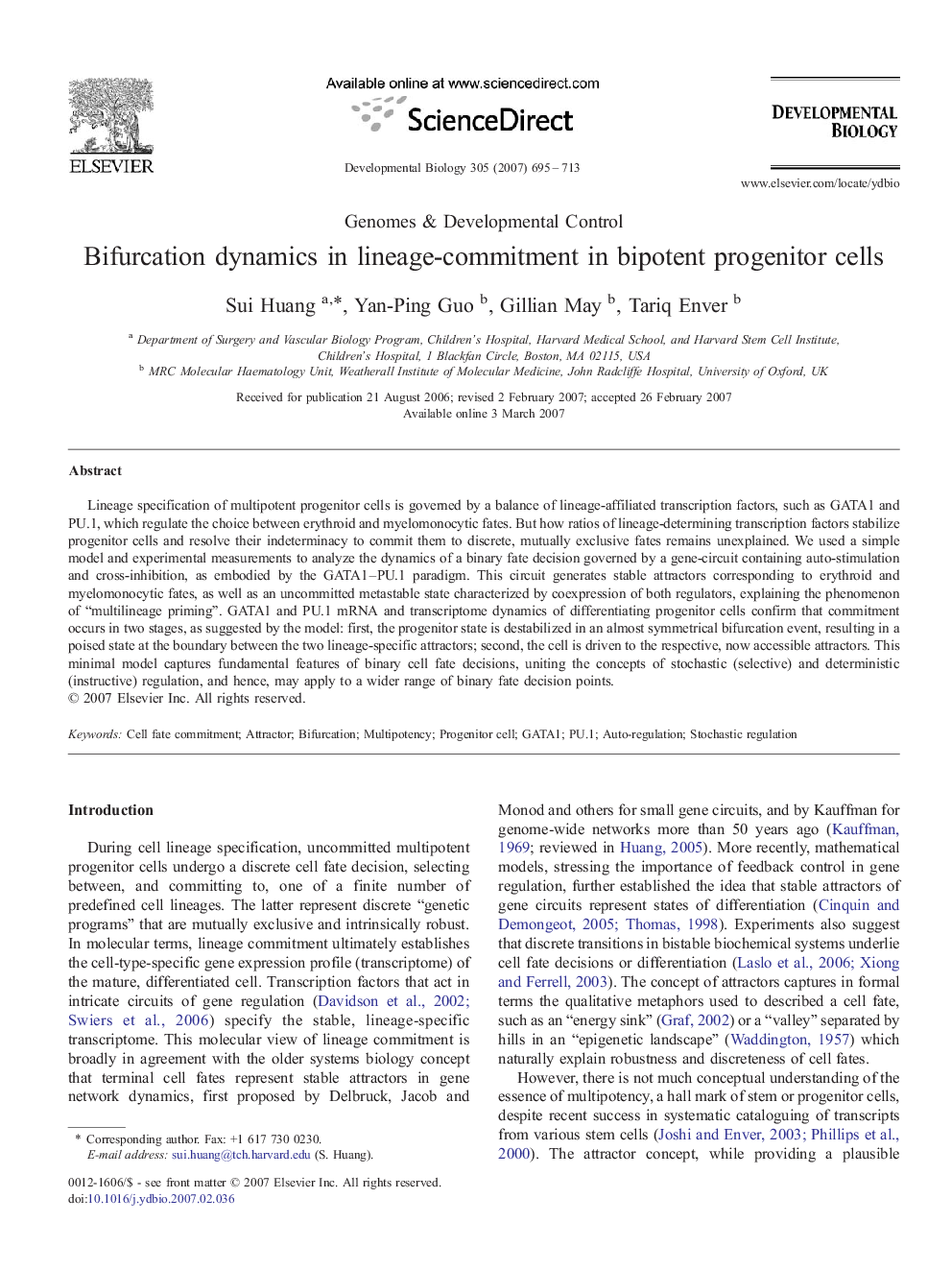| کد مقاله | کد نشریه | سال انتشار | مقاله انگلیسی | نسخه تمام متن |
|---|---|---|---|---|
| 2175347 | 1093837 | 2007 | 19 صفحه PDF | دانلود رایگان |

Lineage specification of multipotent progenitor cells is governed by a balance of lineage-affiliated transcription factors, such as GATA1 and PU.1, which regulate the choice between erythroid and myelomonocytic fates. But how ratios of lineage-determining transcription factors stabilize progenitor cells and resolve their indeterminacy to commit them to discrete, mutually exclusive fates remains unexplained. We used a simple model and experimental measurements to analyze the dynamics of a binary fate decision governed by a gene-circuit containing auto-stimulation and cross-inhibition, as embodied by the GATA1–PU.1 paradigm. This circuit generates stable attractors corresponding to erythroid and myelomonocytic fates, as well as an uncommitted metastable state characterized by coexpression of both regulators, explaining the phenomenon of “multilineage priming”. GATA1 and PU.1 mRNA and transcriptome dynamics of differentiating progenitor cells confirm that commitment occurs in two stages, as suggested by the model: first, the progenitor state is destabilized in an almost symmetrical bifurcation event, resulting in a poised state at the boundary between the two lineage-specific attractors; second, the cell is driven to the respective, now accessible attractors. This minimal model captures fundamental features of binary cell fate decisions, uniting the concepts of stochastic (selective) and deterministic (instructive) regulation, and hence, may apply to a wider range of binary fate decision points.
Journal: Developmental Biology - Volume 305, Issue 2, 15 May 2007, Pages 695–713